- Home
- Robert Harris
The Ghost Page 20
The Ghost Read online
Page 20
‘You must forgive me if I seem a little groggy,’ said Emmett, after we’d shaken hands. ‘We just flew in from Washington and I’m feeling somewhat tired. I normally never see anyone without an appointment. But your mention of a photograph did rather stimulate my curiosity.’
He dressed as precisely as he spoke. His spectacles had fashionably modern tortoiseshell frames, his jacket was dark grey, his shirt was duck-egg blue, his bright red tie had a motif of pheasants on the wing; there was a matching silk handkerchief in his breast pocket. Now I was closer to him, I could discern the younger man staring out from the older: age had merely blurred him, that was all. He couldn’t keep his eyes off my bag. I knew he wanted me to produce the photograph right there on the doorstep. But I was too canny for that. I waited, and kept on waiting, so that eventually he had to say, ‘Fine. Please, do come in.’
The house had glossy wood floors and smelled of wax polish and dried flowers. It had an uninhabited chill about it. A grandfather clock ticked very loudly on the landing. I could hear his wife on the telephone in another room. ‘Yes,’ she said, ‘he’s here now.’ Then she must have moved away. Her voice became indistinct, and faded altogether.
Emmett closed the front door behind us.
‘May I?’ he said.
I took out the cast photograph and gave it to him. He pushed his glasses up on to his silvery thatch of hair and wandered over with it to the hall window. He looked fit for his age and I guessed he played some regular sport: squash, probably; golf, definitely.
‘Well, well,’ he said, holding the monochrome image up to the weak winter light, tilting it this way and that, peering at it down his long nose, like an expert checking a painting for authenticity, ‘I have literally no recollection of this.’
‘But it is you?’
‘Oh yes. I was on the board of the Dramat in the sixties. Which was quite a time, as you can imagine.’ He shared a complicit chuckle with his youthful image. ‘Oh yes.’
‘The Dramat?’
‘I’m sorry.’ He looked up. ‘The Yale Dramatic Association. I thought I’d maintain my theatrical interests when I went over to Cambridge, for my doctoral research. Alas, I only managed a term in the Footlights, before pressure of work put an end to my dramatic career. May I keep this?’
‘I’m afraid not. But I’m sure I can get you a copy.’
‘Would you? That would be very kind.’ He turned it over and inspected the back. ‘The Cambridge Evening News. You must tell me how you came by it.’
‘I’d be happy to,’ I said. And again I waited. It was like playing a hand of cards. He would not yield a trick unless I forced him. The big clock ticked back and forth a few times.
‘Come into my study,’ he said.
He opened a door and I followed him into a room straight out of Rick’s London club: dark green wallpaper, floor-to-ceiling books, library steps, overstuffed brown leather furniture, a big brass lectern in the shape of an eagle, a Roman bust; a faint odour of cigars. One wall was devoted to memorabilia: citations, prizes, honorary degrees, and a lot of photographs. I took in Emmett with Bill Clinton and Al Gore, Emmett with Margaret Thatcher and Nelson Mandela. I’d tell you the names of the others if I knew who they were. A German chancellor. A French president. There was also a picture of him with Lang, a grin-and-grip at what seemed to be a cocktail party. He saw me looking.
‘The wall of ego,’ he said. ‘We all have them. Think of it as the equivalent of the orthodontist’s fish tank. Do take a seat. I’m afraid I can only spare a few minutes, unfortunately.’
I perched on the unyielding brown sofa while he took the captain’s chair behind his desk. It rolled easily back and forth. He swung his feet up on to the desk, giving me a fine view of the slightly scuffed soles of his brogues.
‘So,’ he said. ‘The picture.’
‘I’m working with Adam Lang on his memoirs.’
‘I know. You said. Poor Lang. It’s a very bad business, this posturing by The Hague. As for Rycart – the worst Foreign Secretary since the war, in my view. It was a terrible error to appoint him. But if the ICC continues to behave so foolishly, they will succeed merely in making Lang first a martyr and then a hero, and thus,’ he added, gesturing graciously towards me, ‘a best-seller.’
‘How well do you know him?’
‘Lang? Hardly at all. You look surprised.’
‘Well, for a start, he mentions you in his memoirs.’
Emmett appeared genuinely taken aback. ‘Now it’s my turn to be surprised. What does he say?’
‘It’s a quote, at the start of the final chapter.’ I pulled the relevant page from my bag. ‘“As long as these nations” – that’s everyone who speaks English – “stand together,”’ I read, ‘“freedom is safe; whenever they have faltered, tyranny has gathered strength.” And then Lang says, “I profoundly agree with this sentiment.”’
‘Well, that’s decent of him,’ said Emmett. ‘And his instincts as prime minister were good, in my judgement. But that doesn’t mean I know him.’
‘And then there’s that,’ I said, pointing to the wall of ego.
‘Oh, that.’ Emmett waved his hand dismissively. ‘That was just taken at a reception at Claridge’s, to mark the tenth anniversary of the Arcadia Institution.’
‘The Arcadia Institution?’ I repeated.
‘It’s a little organisation I used to run. It’s very select. No reason why you should have heard of it. The prime minister graced us with his presence. It was purely professional.’
‘But you must have known Adam Lang at Cambridge,’ I persisted.
‘Not really. One summer term, our paths crossed. That was it.’
‘Can you remember much about him?’ I took out my notebook. Emmett eyed it as if I’d just pulled out a revolver. ‘I’m sorry,’ I said. ‘Do you mind?’
‘Not at all. Go ahead. I’m just rather bewildered. No one’s ever mentioned the Cambridge connection between us in all these years. I’ve barely thought about it myself until this moment. I don’t think I can tell you anything worth writing down.’
‘But you performed together?’
‘In one production. The summer revue. I can’t even remember now what it was called. There were a hundred members, you know.’
‘So he made no impression on you?’
‘None.’
‘Even though he became prime minister?’
‘Obviously if I’d known he was going to do that, I’d have taken the trouble to get to know him better. But in my time I’ve met eight presidents, four popes and five British prime ministers, and none of them was what I would describe as personally truly outstanding.’
Yes, I thought, and has it ever occurred to you they might not have reckoned you were up to much, either? But I didn’t say that. Instead I said, ‘Can I show you something else?’
‘If you really think it will be of interest.’ He ostentatiously checked his watch.
I took out the other photographs. Now I looked at them again, it was clear that Emmett featured in several. Indeed, he was unmistakably the man on the summer picnic, giving the thumbs-up sign behind Lang’s back, while the future prime minister did a Bogart with his joint and was fed strawberries and champagne.
I reached across and handed them to Emmett, who performed his affected little piece of stage business again, pushing up his glasses so that he could study the pictures with his naked eyes. I can see him now: sleek and pink and imperturbable. His expression didn’t flicker, which struck me as peculiar, because mine certainly would have done, in similar circumstances.
‘Oh my,’ he said. ‘Is that what I think it is? Let’s hope he didn’t inhale.’
‘But that is you standing behind him, isn’t it?’
‘I do believe it is. And I do believe I’m on the point of issuing a stern warning to him on the perils of drug abuse. Can’t you just sense it forming on my lips?’ He gave the pictures back to me and pulled his spectacles back down on to his nose. Tilting furth
er back in his chair he scrutinised me carefully. ‘Does Mr Lang really want these published in his memoirs? If so, I would prefer it if I weren’t identified. My children would be mortified. They’re so much more puritanical than we were.’
‘Can you tell me the names of any of the others in the picture? The girls perhaps?’
‘I’m sorry. That summer is just a blur – a long and happy blur. The world may have been going to pieces around us, but we were making merry.’
His words reminded me of something that Ruth had said: about all the things that were going on at the time the picture was taken.
‘You must have been lucky,’ I said, ‘given that you were at Yale in the late sixties, to avoid being drafted to Vietnam.’
‘You know the old saying: “If you had the dough, you didn’t have to go.” I got a student deferment. Now,’ he said, twirling in his chair and lifting his feet off the desk. He was suddenly much more businesslike. He picked up a pen and opened a notebook. ‘You were going to tell me where you got those pictures.’
‘Does the name Michael McAra mean anything to you?’
‘No. Should it?’
He answered just a touch too quickly, I thought.
‘McAra was my predecessor on the Lang memoirs,’ I said. ‘He was the one who ordered the pictures from England. He drove up here to see you nearly three weeks ago and died a few hours afterwards.’
‘Drove up to see me?’ Emmett shook his head. ‘I’m afraid you’re mistaken. Where was he driving from?’
‘Martha’s Vineyard.’
‘Martha’s Vineyard! My dear fellow, nobody is on Martha’s Vineyard at this time of year.’
He was teasing me again: anyone who had watched the news the previous day would have known where Lang had been staying.
I said, ‘The vehicle McAra was driving had your address programmed into its navigation system.’
‘Well, I can’t think why that should be the case.’ Emmett stroked his chin and seemed to weigh the matter carefully. ‘No, I really can’t. And even if it’s true, it certainly doesn’t prove he actually made the journey. How did he die?’
‘He drowned.’
‘I’m very sorry to hear it. I’ve never believed the myth that death by drowning is painless, have you? I’m sure it must be agonising.’
‘The police never said anything to you about this?’
‘No. I’ve had no contact with the police whatsoever.’
‘Were you here that weekend? This would have been January the eleventh and twelfth.’
Emmett sighed. ‘A less equable man than I would start to find your questions impertinent.’ He came out from behind his desk and went over to the door. ‘Nancy!’ he called. ‘Our visitor wishes to know where we were on the weekend of the eleventh and twelfth of January. Do we possess that information?’ He stood holding the door open and gave me an unfriendly smile. When Mrs Emmett appeared, he didn’t bother to introduce me. She was carrying a desk diary.
‘That was the Colorado weekend,’ she said, and showed the book to her husband.
‘Of course it was,’ he said. ‘We were at the Aspen Institute,’ he said flourishing the page at me. ‘“Bi-polar relationships in a multi-polar world.”’
‘Sounds fun.’
‘It was.’ He closed the diary with a definitive snap. ‘I was the main speaker.’
‘You were there the whole weekend?’
‘I was,’ said Mrs Emmett. ‘I stayed for the skiing. Emmett flew back on Sunday, didn’t you, darling?’
‘So you could have seen McAra,’ I said to him.
‘I could have done, but I didn’t.’
‘Just to return to Cambridge—’ I began.
‘No,’ he said, holding up his hand. ‘Please. If you don’t mind, let’s not return to Cambridge. I’ve said all I have to say on the matter. Nancy?’
She must have been twenty years his junior, and she jumped when he addressed her in a way no first wife ever would.
‘Emmett?’
‘Show our friend here out, would you?’
As we shook hands, he said, ‘I am an avid reader of political memoirs. I shall be sure to get hold of Mr Lang’s book when it appears.’
‘Perhaps he’ll send you a copy,’ I said, ‘for old times’ sake.’
‘I doubt it very much,’ he replied. ‘The gate will open automatically. Be sure to make a right at the bottom of the drive. If you turn left, the road will take you deeper into the woods and you’ll never be seen again.’
*
Mrs Emmett closed the door behind me before I’d even reached the bottom step. I could sense her husband watching me from the window of his study as I walked across the damp grass to the Ford. At the bottom of the drive, while I waited for the gate to open, the wind moved suddenly through the branches of the high trees on either side of me, laying a heavy lash of rainwater across the car. It startled me so much I felt the hairs on the back of my head stand out in tiny spikes.
I pulled out into the empty road and headed back the way I had come. I felt slightly unnerved, as if I’d just descended a staircase in the darkness and missed the bottom few steps. My immediate priority was to get clear of those trees.
‘Turn around where possible.’
I stopped the Ford, grabbed the navigation system in both hands, and twisted and yanked it at the same time. It came away from the front panel with a satisfying twang of breaking cables and I tossed it into the footwell on the passenger’s side. At the same time I became aware of a large black car with bright headlights coming up close behind me. It overtook the Ford too quickly for me to see who was driving, accelerated up to the junction and disappeared. When I looked back, the country lane was once again deserted.
It’s curious how the processes of fear work. If I’d been asked a week earlier to predict what I might do in such a situation, I’d have said that I’d drive straight back to Martha’s Vineyard and try to put the whole business out of my mind. In fact, I discovered, Nature mingles an unexpected element of anger in with fear, presumably to encourage the survival of the species. Like a caveman confronted by a tiger, my instinct at that moment was not to run; it was somehow get back at the supercilious Emmett – the sort of crazy, atavistic response that leads otherwise sane householders to chase armed burglars down the street, usually with disastrous results.
So instead of sensibly trying to find my way back to the interstate, I followed the road signs to Belmont. It’s a sprawling, leafy, wealthy town, of terrifying cleanliness and orderliness – the sort of place where you need a licence just to keep a cat. The neat streets, with their flagpoles and their four-by-fours, slipped by, seemingly identical. I cruised along the wide boulevards, unable to get my bearings, until at last I came to something which seemed to resemble the middle of town. This time, when I parked my car, I took my suitcase with me.
I was on a road called Leonard Street, a curve of pretty shops with coloured canopies set against a backdrop of big bare trees. One building was pink. A coating of snow, melted at the edges, covered the grey roofs. It could have been a ski resort. It offered me various things I didn’t need – a real estate agent, a jeweller, a hairdresser – and one thing I did: an internet café. I ordered a coffee and a bagel and took a seat as far away from the window as I could. I put my case on the chair opposite, to discourage anyone from joining me, sipped my coffee, took a bite out of my bagel, clicked on Google, typed in ‘“Paul Emmett” “Arcadia Institution”’, and leaned towards the screen.
*
According to www.arcadiainstitution.org, the Arcadia Institution was founded in August 1991 on the fiftieth anniversary of the first summit meeting between Prime Minister Winston S. Churchill and President Franklin D. Roosevelt, at Placentia Bay in Newfoundland. There was a photograph of Roosevelt on the deck of a US battleship, wearing a smart grey suit, receiving Churchill, who was about a head shorter and dressed in some peculiar rumpled dark blue naval outfit, complete with a cap. He looked like a crafty h
ead gardener paying his respects to a local squire.
The aim of the institution, the website said, was ‘to further Anglo-American relations and foster the timeless ideals of democracy and free speech for which our two nations have always stood in times of peace and war’. This was to be achieved ‘through seminars, policy programs, conferences and leadership development initiatives’, as well as through the publication of a bi-annual journal, The Arcadian Review, and the funding of ten Arcadia Scholarships, awarded annually, for postgraduate research into ‘cultural, political and strategic subjects of mutual interest to Great Britain and the United States’. The Arcadia Institution had offices in St James’s Square, London, and in Washington, and the names of its board of trustees – ex-ambassadors, corporate CEOs, university professors – read like the guest list for the dullest dinner party you would ever endure in your life.
Paul Emmett was the institution’s first president and CEO, and the website usefully offered his life in a paragraph: born Chicago 1949, graduate of Yale University and St John’s College, Cambridge; lecturer in international affairs at Harvard University, 1975–79, and subsequently Howard T. Polk III Professor of Foreign Relations, 1979–91; thereafter the founding head of the Arcadia Institution; President Emeritus since 2007; publications: Whither thou Goest: The Special Relationship 1940–1956; The Conundrum of Change; Losing Empires, Finding Roles: Some Aspects of US–UK Relations since 1956; The Chains of Prometheus: Foreign Policy Constraints in the Nuclear Age; The Triumphant Generation: America, Britain and the New World Order; Why We Are In Iraq. There was a profile in Time magazine, which described his hobbies as squash, golf and the operas of Gilbert and Sullivan, ‘which he and his second wife, Nancy Cline, a defence analyst from Houston, Texas, regularly call upon their guests to perform at the end of one of their famous supper parties in the prosperous Harvard dormitory town of Belmont, MA’.
I worked my way through the first of what Google promised would eventually prove to be 37,000 entries about Emmett and Arcadia:
Roundtable on Middle East Policy – Arcadia Institution

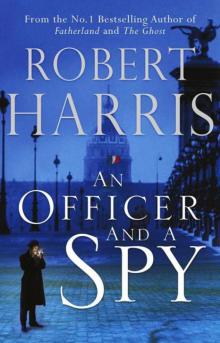 An Officer and a Spy
An Officer and a Spy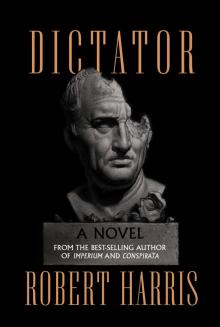 Dictator
Dictator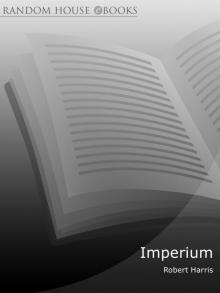 Imperium:
Imperium: Enigma
Enigma Fatherland
Fatherland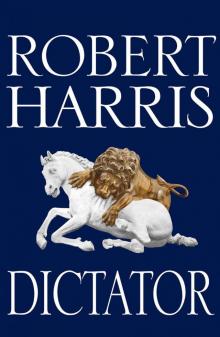 Dictator:
Dictator: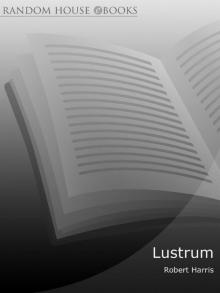 Lustrum
Lustrum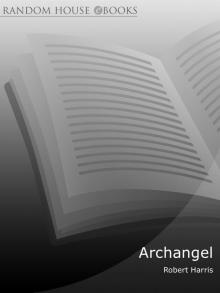 Archangel
Archangel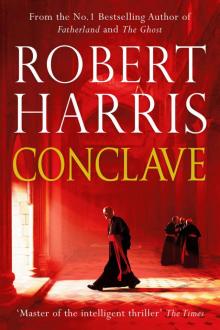 Conclave
Conclave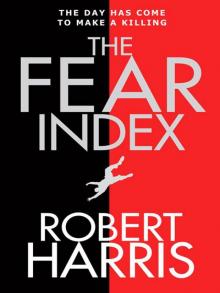 The Fear Index
The Fear Index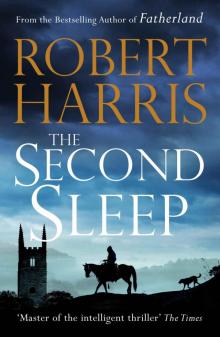 The Second Sleep
The Second Sleep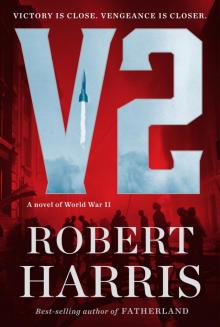 V2
V2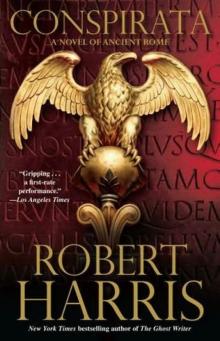 Lustrum c-2
Lustrum c-2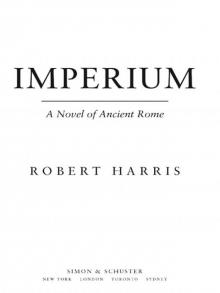 Imperium
Imperium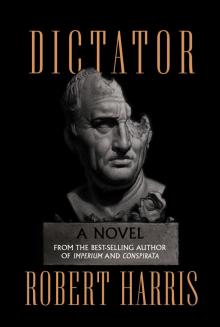 The Dictator
The Dictator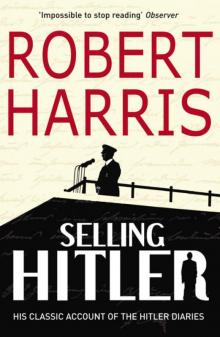 Selling Hitler
Selling Hitler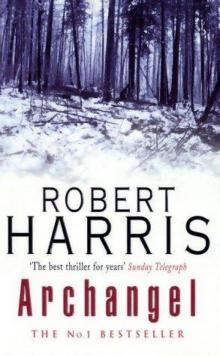 Archangel (Mass Market Paperback)
Archangel (Mass Market Paperback)